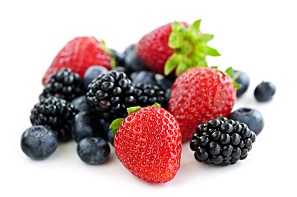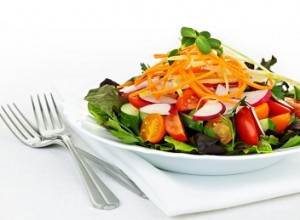By J.J.Brown, Ph.D.
Reasons to Go Vegan
 For people who grow up in a family where eating meat is a tradition, giving it up for a diet exclusively of fruits, vegetables and grains is a big step. How does this change happen? Paul McCartney of The Beatles stopped eating meat 30 years ago. The decisive moment came when he was watching a lamb run through a field in front of him, and he realized he could not eat the same creature he adored. “Meatless Mondays” is a way to start, with his new project for schools. He encourages school children and schools to have meatless meals on Mondays for a healthier diet with more variety.
For people who grow up in a family where eating meat is a tradition, giving it up for a diet exclusively of fruits, vegetables and grains is a big step. How does this change happen? Paul McCartney of The Beatles stopped eating meat 30 years ago. The decisive moment came when he was watching a lamb run through a field in front of him, and he realized he could not eat the same creature he adored. “Meatless Mondays” is a way to start, with his new project for schools. He encourages school children and schools to have meatless meals on Mondays for a healthier diet with more variety.
Michael Natkin, who created the cookbook “Herbivoracious: A Flavor Revolution with 150 Vibrant and Original Vegetarian Recipes”, is a vegetarian. He has been since 1984. When people ask why, Michael Natkin says, “because I wouldn’t like to kill an animal, and it doesn’t make sense to me to have someone else do it for me.”
Throughout history, many of our genius leaders and achievers were vegan, including artist inventor Leonardo Da Vinci, the leader Mohandas Ghandi, and Apple’s inventor Steve Jobs. Today, more and more people in the public spotlight are adopting a vegan diet, like actors Natalie Portman and Tobey Maguire.
Strong Vegan Choices
 Treading lightly on the planet doesn’t mean giving up strength. The vegan choice is a strong choice. Many athletes are turning to a vegan diet, and maintain that plant based diets keep them stronger and healthier, including track star Carl Lewis and tennis star Venus Williams, and pro athlete Brendan Brazier. When making choices for each meal, keep good protein sources out in front, like beans, nuts, and whole grains. Sample new high protein ingredients like tempeh, which has 30 grams of protein in one cup. Quinoa includes 9 grams of protein in a cup, and has an interesting texture for adding variety.
Treading lightly on the planet doesn’t mean giving up strength. The vegan choice is a strong choice. Many athletes are turning to a vegan diet, and maintain that plant based diets keep them stronger and healthier, including track star Carl Lewis and tennis star Venus Williams, and pro athlete Brendan Brazier. When making choices for each meal, keep good protein sources out in front, like beans, nuts, and whole grains. Sample new high protein ingredients like tempeh, which has 30 grams of protein in one cup. Quinoa includes 9 grams of protein in a cup, and has an interesting texture for adding variety.
Our Healthy World
A vegan diet can go a long way toward creating a healthier world. In the inspiring book, “Harvest for Hope: A Guide to Mindful Eating,” biologist author Jane Goodall gives a big dose of hope. Eating plants, which are lower on the food chain than animals, means there is more food for everyone. Considering how fast the human population grows, feeding everyone in the sustainable future is a challenge. Being mindful of each food choice, and eating plants instead of animals can be a gradual change that helps everyone. And in a world where too many people go hungry, this kind of change is a welcome one.
– J.J.Brown, Ph.D. was born in the Catskill Mountain region of New York and has lived in New York City for two decades. She completed a Ph.D. in genetics and her research is published in leading clinical and education journals. She worked as a research scientist before turning to fiction writing, publishing short stories, novels and poems.
